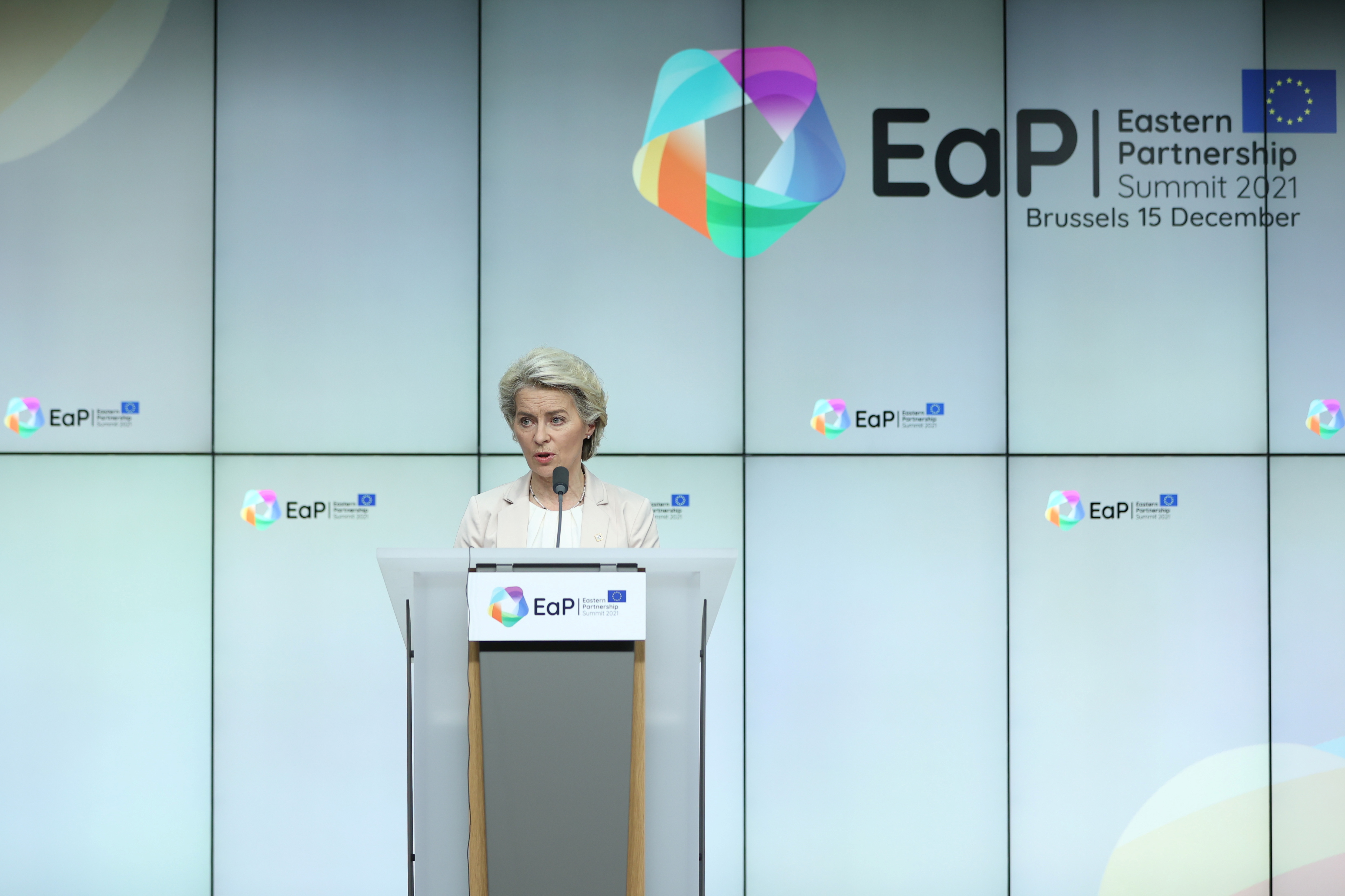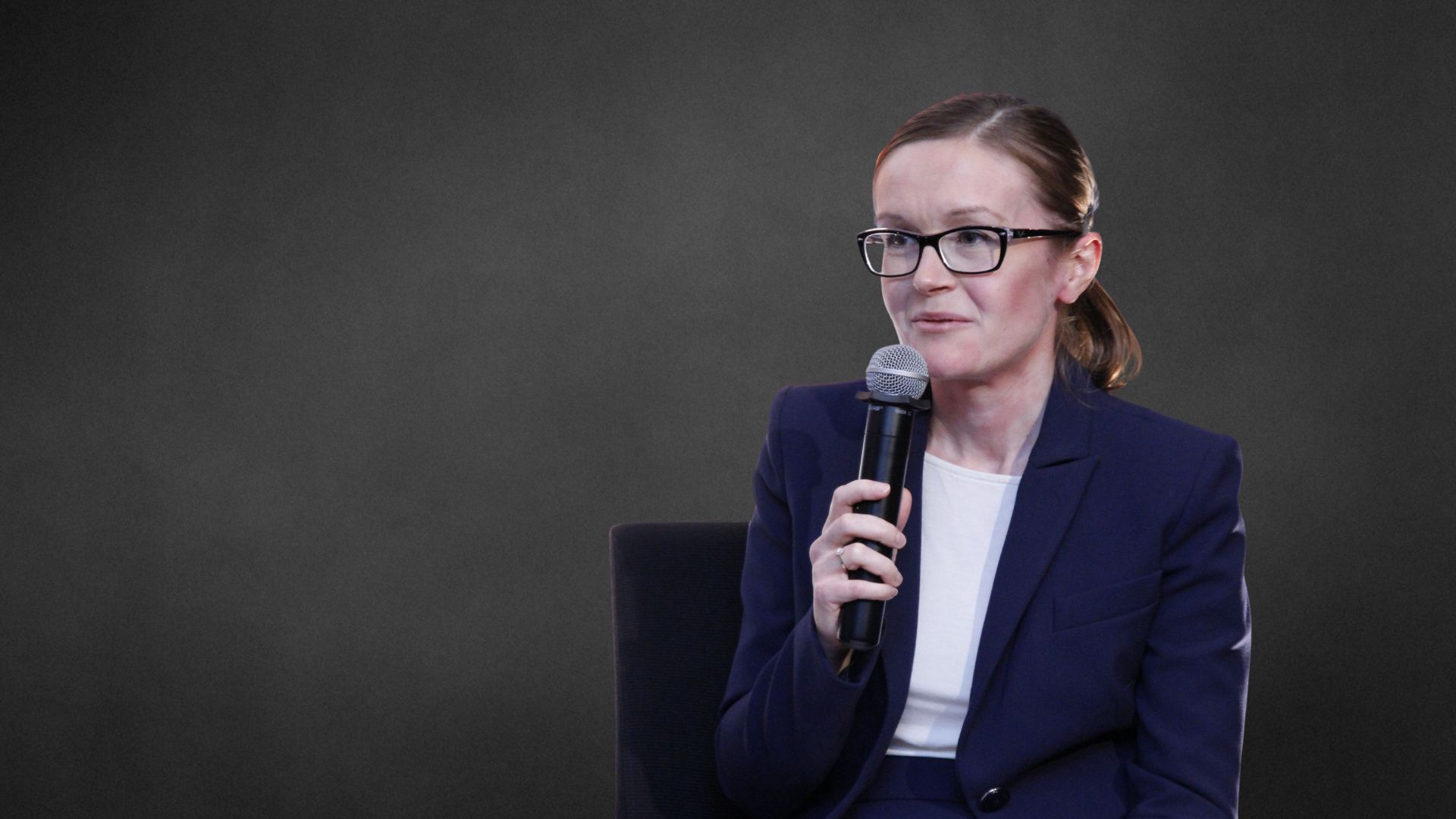6th Eastern Partnership Summit-Small Steps Approach
On 15 December, the 6th Eastern Partnership (EaP) Summit took place in Brussels. The meeting did not lead to the adoption of a new EaP vision, but the EU acknowledged the trio format of the associated countries. The Union will develop the existing cooperation with its partners by increasing investments, including developing a green and digital economy.
 Fot. POOL/Reuters/Forum
Fot. POOL/Reuters/Forum
Under what circumstances did the summit take place?
Since the last EaP summit, Ukraine, Moldova and Georgia established the Association Trio to deepen relations with the Union. All three countries have made good progress in implementing the economic provisions of the Association Agreements, but they are struggling with the execution of rule of law. Only the Moldovan government is determined to conduct anti-corruption reforms. Among the non-associated countries, Belarus suspended its participation in the EaP. Armenia and Azerbaijan remain in conflict after the war on Nagorno-Karabakh in 2020, but they cooperate within the scope of the EaP.
The summit took place amid Russia’s aggressive actions in the EaP region. The Russian authorities have mobilised troops at the border with Ukraine, as well as support the Lukashenka regime in carrying out hybrid operations towards the EU. In October, they triggered an energy crisis in Moldova to undermine confidence in its pro-EU authorities.
What was agreed at the meeting?
Leaders of EU and EaP countries condemned Belarus’s hybrid actions against the EU and called on Russia to de-escalate. The EU will increase the supply of vaccines in the EaP countries and the Polish development bank (Bank Gospodarstwa Krajowego) will coordinate those efforts. While continuing the aid to Belarusian society, the EU is ready to cooperate with the Belarusian authorities if the necessary conditions for a peaceful democratic transition are in place. An offer of economic aid for a democratic Belarus (up to €3 billion) was also confirmed.
The EaP priority will be to support good governance and investments under the programme “Recovery, resilience and reform” with targets until 2025. Greater emphasis was made on the digital and green transformations and healthcare. An Economic and Investment Plan was adopted to help mitigate the negative socio-economic effects of the COVID-19 pandemic by co-financing public and private investment in the amount of €2.3 billion. The plan has great potential for the development of the digital economy and supporting enterprises, but the level of financing of transport and energy investment to a small extent covers the needs of the EaP countries.
What is the EU offer for the Association Trio?
As in previous EaP summits, the EU recognised the European aspirations and the European choice of the associated countries. Provided that the Association |Agreements are successfully implemented, the EU assumes a gradual deepening of integration with the single market within the scope of the signed agreements, for instance, in certain services. The EU has recognised the Trio initiative and will consider options for enhancing cooperation with the countries in the areas of the green and digital transformations, connectivity, energy security, justice and home affairs, strategic communication, and healthcare. In practice, the EU is already working with them in this format. In November the prime ministers of the Trio countries jointly visited Brussels to discuss cooperation options with representatives of EU institutions.
What will EU security cooperation be like with the EaP countries?
The EU wants to further develop cooperation in combating hybrid threats, including cyber. The Union will exchange experiences with partners, conduct trainings, and help build their capabilities to counteract threats by organising practical exercises with the interested countries, among other actions. Greater emphasis will be put on strengthening their resilience to information manipulation and disinformation as well as strengthening strategic communication. Where appropriate, the EU will develop dialogue and cooperation on the civilian dimension of the Common Security and Defence Policy to further promote a convergence of positions in the field of foreign policy with partners, their contribution to European civilian and military missions, and the provision of EU assistance through the European Peace Facility (EPF).
How can Poland make use of the summit decisions?
Although the EU will focus primarily on supporting the economic development of the EaP countries, which is important for their stabilisation, it will be crucial for Poland to further promote tighter integration of the associated countries with the EU. Poland can support the activities of the Association Trio while also emphasising that the initiative will not lead to a split in the EaP, rather that it contributes to differentiation in practice. If the Trio presents proposals for cooperation with the EU, Poland can promote them among the Member States by providing diplomatic support and including the Trio in intra-EU meetings. It is worth developing parliamentary cooperation between the EU and the Association Trio countries. MEPs from Poland, Lithuania, Ukraine, Moldova, and Georgia have already established such cooperation at the level of foreign policy committees.


